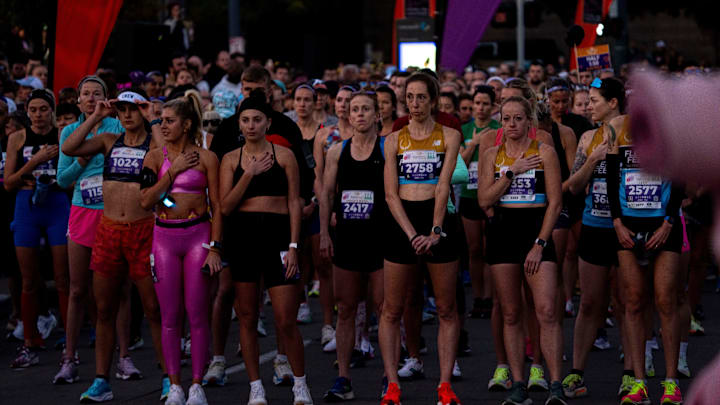Coaches Provide Insight on What To Avoid When Training To Run a Half-Marathon

There is a lot of work that goes into finding success as a runner. If you are looking to conquer a challenge, such as a half-marathon, there is a lot of preparation that will need to be done.
There will be challenges along the way, but avoiding those big mistakes that will set you back is key. Over at Runners World in a piece by Laurel Leicht, several coaches provided insights in what to avoid while training so that you can reach the goals you set out to achieve.
The first, shared by Amanda Brooks, who is a Denver-based running coach and founder of Run to the Finish, is to avoid trying to make up for lost time. If you miss a few miles here and there, don’t try to squeeze them in.
Instead, view them as rest days for your body. Life happens and sometimes your schedule can be interrupted by an illness, work or just being busy in general.
Instead of looking back on what was missed, keep looking forward and stick to the program you have in place.
“The fear of not doing enough leads to cramming in extra miles, and that can lead to injury or a lot of extra fatigue,” she said. “If you’ve only missed a couple of runs, jump right back into the plan and keep moving forward, that little bit of extra rest might just make everything feel better.”
Another mistake Brooks has seen runners make during preparation is only drinking water. Your body needs more than just that to be properly hydrated. Some sports drinks will give you that little extra boost that is needed.
“While we need to stay hydrated, for athletes sweating and losing sodium, there is a massive benefit to using electrolytes,” says Brooks. “They can help with preventing that feeling of sloshing in the stomach and reducing fatigue, brain fog, and even cramps.”
The last tip she provides is to avoid sweating the small stuff. Sometimes people will make mountains out of molehills, worrying about something that won’t have as big of an impact in the long run as they believe.
Big picture thinking is key to success as a runner.
Emily Booth, who is a NASM-certified personal trainer and running coach in Denver believes practicing at competition level is key.
Too often runners don’t put in the same effort at practice as the half-marathon and wonder why they come up short of their goals.
“Pacing strategy is critical—it’s easy to get caught up in the excitement of the race and start out too fast, resulting in a need to significantly slow down. You want to be running as fast, or nearly as fast, in the last mile as the first.”
Along with pacing, Booth believes an emphasis needs to be placed on maintaining nutrition throughout the run. Even elite runners will hit a limit when some electrolytes or carbohydrates will be needed.
“On average, most trained individuals have enough stored glycogen to get through 75 to 90 minutes of running,” says Booth. “However, considering it will take many runners longer than 90 minutes to complete a half marathon, it’s wise to consider eating some easily digestible carbohydrates, like a 100-calorie gel, 15 minutes before the race and then every 30 to 45 minutes during the event.”
Pacing is something Dave Berdan, a two-time winner of the Baltimore Marathon, former collegiate coach, and personal coach based in Maryland, believes is incredibly important as well.
Mental prep is another mistake he sees too many runners make. Being physically ready is important, but if you are not in the right mindset, things will go awry.
Knowing the course you will be running is key so you can find spots to push a little harder or ease off the gas.
Another mistake he has seen people make is not doing enough strength training. Getting in the miles running is key, but strength training will help avoid injuries as well.
“The reason most runners don’t include strength training is that ‘it takes too much time’—but an effective strength plan can take as little as 10 to 15 minutes, three to four days per week,” says Jeff Gaudette, owner and head coach at RunnersConnect. “Plus, it doesn’t have to be directly after your run. You can squeeze out 10 minutes after dinner or anytime in the evening if you’re strapped for time.”
Quick workouts like that will pay off in the long run. He recommends focusing on strengthening your core, hips, glutes and lower legs in preparation for races.
